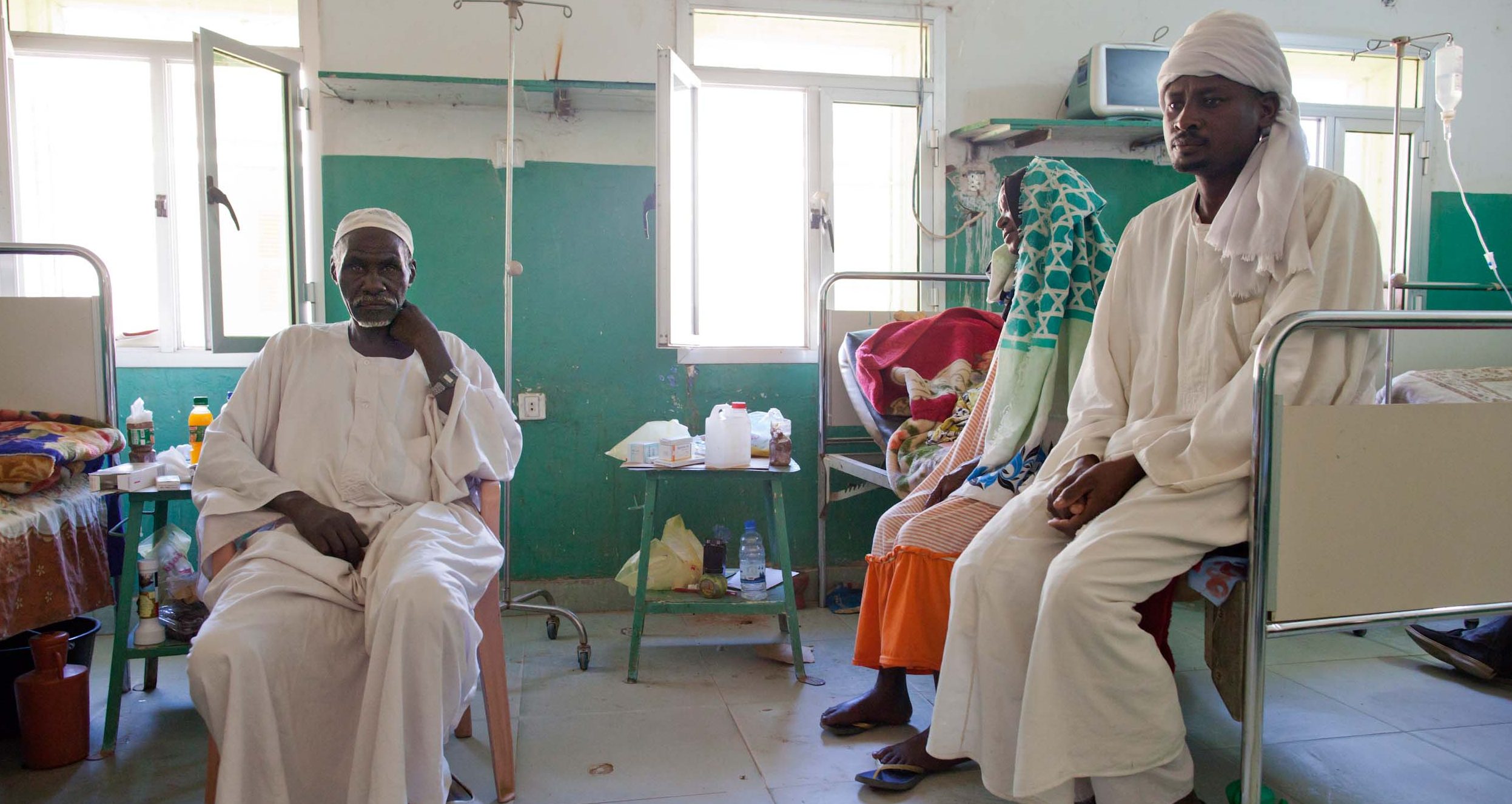
Patients and relatives at the intensive-care area of the El Fasher Hospital, North Darfur. Photo by Albert González Farran, UNAMID / Flickr
The concept and assessment of health systems strengthening
25 May 2021
Lynda Keeru [opens a new window] reports on a recent ReBUILD for Resilience webinar – ‘Getting on the same page: the concept and assessment of ‘health systems strengthening’
It is vital to understand and get a few answers to important questions if we are to grasp Health Systems Strengthening (HSS) and its assessment. Some of these key questions cover how we define HSS. How do we assess ‘strengthening’? Should it be in terms of outcomes (based on access, coverage, equity, quality and security) or should it be based on ‘attributes’ (eg resilience, responsiveness, learning)? Is assessing strengthening different from assessing performance? There’s a lot that needs to be clarified and this webinar, ‘Getting on the same page: the concept and assessment of ‘health systems strengthening’, attempted to do just that.
The first presentation by Sophie Witter reflected on the challenges in evidence particularly in health systems in low- and middle-income countries. She revealed that there are challenges based on definition, particularly on the fact that there is no clear consensus on how to define HSS. She presented a few definitions that were predominantly conceptualized by global institutions but notably, not usually by the people working within these health systems themselves.
Examples of definitions of HSS include:
• “any array of initiatives that improves one or more of the functions of the health systems and that leads to better health through improvements in access, coverage, quality or efficiency” World Health Organization
• Adam and De Savigny (2012), highlight that to be considered HSS, an intervention needs to have system-level changes as opposed to changes at the organizational level
• Chee et al, (2013) Health systems strengthening is permanently making the systems function better, not just filling gaps or supporting the systems to produce better short-term outcomes
A lack on agreement on the definition can create challenges, for example in tracking investments and spending by different funders. It can also cause obstacles in designing HSS interventions and their assessment. A related challenge is in the lack of frameworks for HSS design and evaluation, which unfortunately leads to large evidence gaps and a lack of robust evidence.
Sushil Baral stepped in and gave a much needed presentation that began by highlighting some differing perceptions of HSS, particularly at the national and sub-national levels, by different actors in the health system. This can lead to misconceptions such as: thinking that the public sector delivery system is the health system, that free care is patient centeredness and that the national average is an appropriate measure of progress toward policy goals. If we are to embed HSS concepts in policy processes at national and sub county levels, we should identify the goals of HSS, the manner in which these goals will be measured and what can be done differently to improve effectiveness of these HSS policy.
Jo Keatinge explained how the UK Foreign, Commonwealth and Development Office (FCDO) views HSS and their priorities for the coming years. They acknowledge that their goals of global health security and Universal Health Coverage require strong systems. They believe that there is no ‘one size fits all’ approach to HSS as it is based on context and as much a political as a technical issue. To progress the HSS agenda the FCDO will work closely with other government departments such as Health and Social Care and with global stakeholders and use the UK’s international influence, for example in processes such as the G7 to keep the issue high on the agenda.
Olga Bornemisza reflected on HSS and the progress that has been made in this area. Increasing global attention to HSS started way back in 2000 and there has been a lot of effort directed towards harmonizing some of the biggest agencies around health systems strengthening. She reiterated that the WHO building blocks (service delivery, health workforce, information, medical products, financing and governance) remain very relevant today especially in achieving the overall goals and outcomes of improved health, responsiveness, financial protection and improved efficiency. She argued that in order to achieve results that we are globally geared towards (global health security and resilient societies, inclusive economic growth and employment, as well as equitable health outcomes and wellbeing), a multisectoral approach must be taken. This way, the goals of health security and Universal Health Coverage will be achieved.
Natasha Palmer presented us with the HSS Evaluation Collaboration model. The Collaboration brings together key stakeholder groups – funders, implementers and evaluators. Their goal is to have collaborative impact, share information, understand past experiences and suggest new and better approaches.
Political commitment to processes, shared societal values, sustained commitment, coherent reform programmes, quality of implementation, community involvement in the design and implementation of the interventions and individual and organizational capacity are some of the factors that have been highlighted by various studies as likely to increase HSS.
Further reading
Witter, S. et al. (2019) Health systems strengthening – reflections on its meaning, assessment and our state of knowledge. International Journal of Health Planning and Management, 1-10.
Contributors
Kabir Sheikh
Sophie Witter
Sushil Baral
Olga Bornemisza
Natasha Palmer
Jo Keatinge